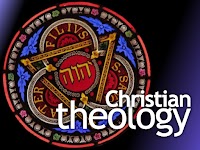
So I wrote about how
Whenever I bring up this fact with certain
Don’t believe me? Look at their catechisms. A
- “What is the chief end [by which they mean purpose] of man?”
- “Man’s chief end is to glorify God, and enjoy him for ever.”
Now, does that question-and-answer pair come from bible? Kinda.
1 Corinthians 10.31 KJV - Whether therefore ye eat, or drink, or whatsoever ye do, do all to the glory of God.
Psalm 145.1-2 KJV - 1 I will extol thee, my God, O king;
- and I will bless thy name for ever and ever.
- 2 Every day will I bless thee;
- and I will praise thy name for ever and ever.
That question and answer is based on bible. Most of the catechisms connect right back to bible. Or at least they claim to; every once in a while you’ll find a Q&A where you’ll balk: “Wait, is that what the bible meant?” and no, not really. Catechisms are the work of humans y’know, and humans make mistakes.
Hence every so often there’s gonna be an official teaching of that church where y’might wonder, “How’d they come up with that?”—and nope, it’s not from bible. The church’s founder, or one of its more famous preachers, or some significant author, coined it. The people of that church thought it sounded like godly
So that’s what you’ll find in mainline churches: People who are trying to be consistent with the scriptures. But also consistent with their traditions. Traditions are very important to them!—they help connect ’em with one another, and with the Christians of the past. Likewise they figure those traditions are ultimately, originally based on the apostles’ teachings, i.e. bible: We shouldn’t find any contradictions between them.
Yeah, those people with hangups about how biblical mainliners are, don’t really know any mainliners.
Me, I’m not necessarily even thinking of mainliners and catechisms.
“Christians” who actively reject bible.
I know some former Christians, and some former pastors who still largely consider themselves Christian. These folks have decided they no longer trust the bible.
Oh, they’ll still pull ideas from it. They’ll keep, and preach, any of the ideas they like. They’ll quote verses they consider relevant.
And a number of ’em have chosen to become evangelists for this new bible-rejecting lifestyle. “Stop believing the scriptures! Stop trusting them to tell you what God is like! Follow me as I follow Christ, yet reject his apostles and prophets. I only follow the Holy Spirit; so should you. He’s the only one you need to heed. Be like me.”
Yeah, no thank you.
True, we can follow God without a bible. Abraham did. So did Moses;
True, plenty of heretics totally have bibles. Having and reading and quoting a bible doesn’t make us heresy-proof! Certain heretics quote scripture all the time. Quote it wrong—that’s part of the problem—but they do quote it, and claim their interpretations are entirely correct. After all, as is common with heretics, they insist they know better than every other Christian on earth. Certainly know God better.
Bibles are no guarantee we won’t go astray. But those who reject bibles—well, that’s pretty much a guarantee they went astray a while ago. ’Cause they’re rejecting the bible’s revelations about God, from God. These, they insist, are not from God… because they know better, don’t they.
Instead of bible, we’re gonna claim we follow the Spirit. Assuming we can even hear him, or recognize the difference between the Spirit and our own urges, biases, and lusts. Heretics, y’notice, kinda don’t. The bible’s meant to be something we compare with our various “God ideas” to make sure they’re consistent with what God wants, and his character. But since these guys don’t do bible anymore, they can’t properly fact-check themselves. Not that they ever feel they need to; again, they know better! They alone know what God’s actually like… and wouldn’t you know,
So, can you call yourself Christian if you do theology without a bible, or with the bible considered an optional, selective type of revelation?
Well let’s face it: You can call yourself whatever you please. You can call yourself a hardboiled egg if you like. People aren’t likely to believe you though. And if you call yourself Christian but reject bible, most bible-believing Christians will figure you’re off your rocker. You might convince
Christians who passively reject bible.
More commonly, more casually, a number of self-described Christians don’t bother to base their beliefs on bible, nor use the bible to fact-check the things they do believe.
No, not out of malice, or arrogance and pride, or because they’re fashioning an imaginary God who tells them only what they want to hear. Largely it’s just out of apathy. They don’t care whether their beliefs are consistent with the scriptures. They just wanna believe what they wanna believe. Why be so nitpicky?
“Being so nitpicky” is what they regularly accuse me, and my fellow theologians, of whenever we dare to challenge any of their beloved beliefs. Any time I point out
I mean, if you wanna embrace
Instead I recommend getting serious about your theology. Start asking, “Is that biblical?” rather than reposting every nice idea someone’s turned into an Instagram meme. And if it is biblical, make sure you’ve not misunderstood the bible—is it something the bible describes as commonly taking place in ancient times, but we’re actually not to do it (i.e.
Yeah, that’s a bit of work. Shallow religion is way easier! And rejecting the bible entirely, is easiest of all. You don’t have to know anything; you just have to follow your gut. To your own destruction, but hey.


